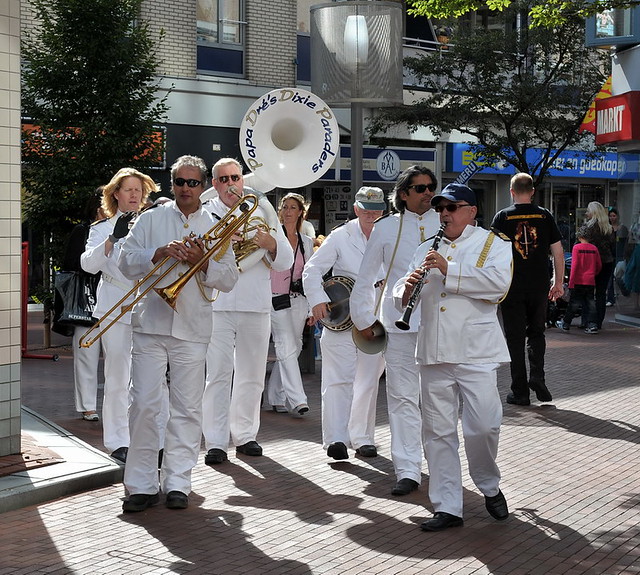There are a lot of people nowadays who enjoy great jazz music. In fact, almost every home has somebody who loves to listen to its cool rhythm and its moving beat. However, jazz music did not come along that easy since it all started. In fact, based on the origin of jazz , this type of music genre had its share of low times before it hit the popularity spot. While jazz is now being enjoyed by a lot of people, there was a time in its history when it was not as accepted as it is today.
, this type of music genre had its share of low times before it hit the popularity spot. While jazz is now being enjoyed by a lot of people, there was a time in its history when it was not as accepted as it is today.
 |
| Photo by FaceMePLS (cc) |
In general, the origin of jazz was believed to have started in New Orleans before it spread to Chicago and then on to Kansas City, then to New York City and finally the West Coast area. Both the vocals and the instrumental sides of the blues are known to be essential components that we can still predominantly see in this music genre today. There have been and there still are many types of the genre and this was all started with the ragtime that officially started in New Orleans or what is also known as the Dixieland jazz. Then, after this, there came the swing jazz, which was also known as the bop or bebop. Cool or progressive jazz followed thereafter, which was also then succeeded by the hard bop or the neo-bop.
and finally the West Coast area. Both the vocals and the instrumental sides of the blues are known to be essential components that we can still predominantly see in this music genre today. There have been and there still are many types of the genre and this was all started with the ragtime that officially started in New Orleans or what is also known as the Dixieland jazz. Then, after this, there came the swing jazz, which was also known as the bop or bebop. Cool or progressive jazz followed thereafter, which was also then succeeded by the hard bop or the neo-bop.
Then, there was the third stream and the mainstream modern and the jazz type that a lot of people like to dance, which is the Latin jazz. Of course, rock and roll also made its influence on this music genre with the coming out of the jazz rock, which was followed lastly by the avant-garde or what is commonly known as the free jazz .
.
The origin of jazz actually started out in the later years of the 19th century and this was derived from the work songs of the blacks, their sorrow songs, their field shouts, their hymns and their spiritual songs, the melodic, rhythmic and harmonic elements of which were seen to have been dominated by African influence. However, because it was seen as a music genre that was improvisational, emotional and spontaneous in nature and because it was mainly associated with the blacks, jazz did not garner the level of recognition that it deserved.
It was the European audiences that showed warmer reception to jazz, making the jazz musicians of America go to this country to work on their trade. Jazz only gained a wider audience when adaptations or imitations of it were made by white orchestras. It was in the later part of the 1930's when it was known to have become a legitimate entertainment and this was when Benny Goodman initiated concerts at the Carnegie hall of groups having mixed racial origins.
initiated concerts at the Carnegie hall of groups having mixed racial origins.
Ian Pennington is an accomplished niche website developer and author. Article Source: EzineArticles |

No comments:
Post a Comment